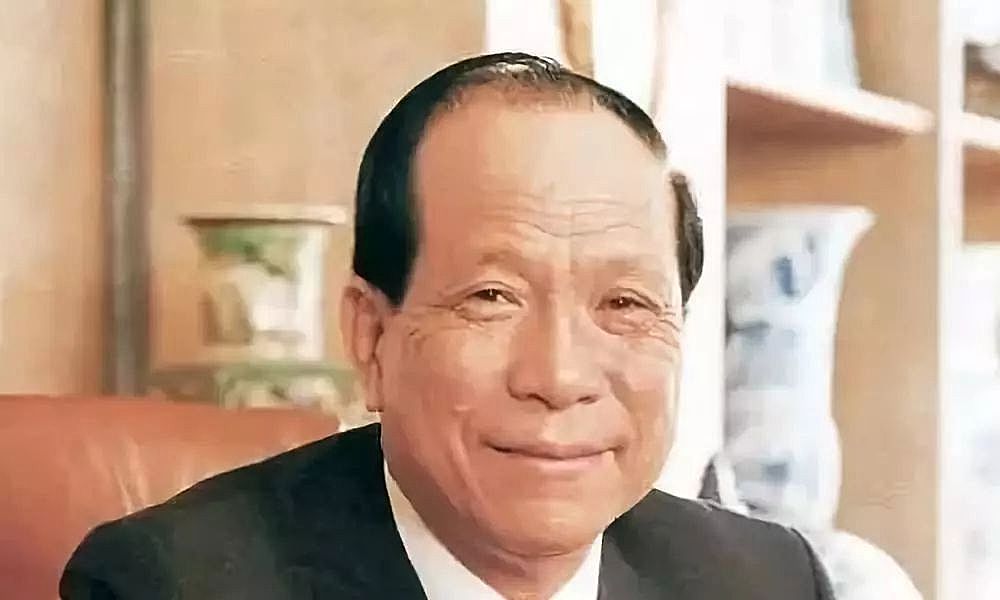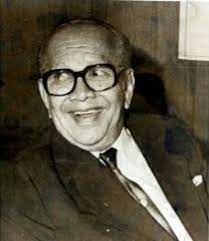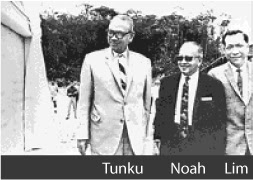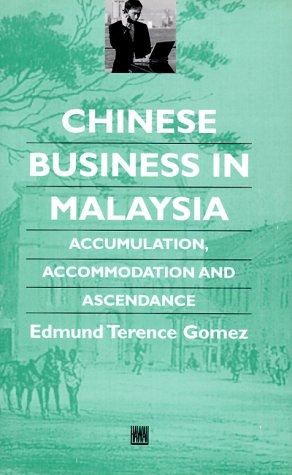The Genting group’s success has always been a combination of multiple factors, from luck to business savvy to powerful friends. The privilege you see accorded to it today has its roots planted in the past.
A thread.
A thread.
1/ Genting founder Lim Goh Tong left Fujian in China for Malaya in 1937 at 20 years old. He began as carpenter, then sold food stuff, moved on to petty trading of scrap metal, before establishing a profitable interest in tin and iron mining in Johor.
2/ By the 1950s he was already an established name in the construction industry. Through his company, Kien Huat Construction Sdn Bhd, Lim secured contracts to construct major government projects, from dams to roads and water supply sewerage and irrigation schemes.
3/ In 1950, Lim came in contact with Mohammad Noah Omar, then an assistant district officer in Batu Pahat. Noah would go on to become a Johor assemblyman and Dewan Rakyat speaker. He was also the father-in-law of prime ministers Abdul Razak and Hussein Onn.
4/ In 1965, Lim and Noah established Genting Highlands Bhd with Lim as managing director and Noah as chairman. That year the company secured approval from the government to develop a resort on a mountain top on the border between Selangor and Pahang.
5/ Part of the deal was to also develop infrastructure required to access the resort, which entailed, among others, cutting through virgin jungle. The government approved the sale of about 4,856ha to develop the Genting Highlands hill resort, roughly 50km from Kuala Lumpur.
6/ When the road to the proposed resort was completed, Genting Highlands Hotel Sdn Bhd was incorporated to build the hotels and promote the area. Lim was also given a casino licence, renewable every three months, to ensure profitability of the resort.
7/ Genting Highlands Hotel was listed on the then KLSE in Dec 1971. It would be renamed Genting in June 1978. And the casino would become the main revenue earner despite Genting going on to diversify its businesses.
8/ In 1982, Genting transferred its to subsidiary Resorts World Sdn Bhd. Resorts World would go on to seal a five-year pioneer status on condition that it complied with New Economic Policy’s redistribution requirements by 1987.
9/ In Aug 1989, a major restructuring exercise was underway where, among others, Resorts World’s capitalisation grew after it took over Genting’s gaming, resorts and other businesses.
10/ After Resorts World was listed, Genting’s interest was reduced in the company from 99% to around 54% with bumiputeras owning 30%.
11/ But the new major bumiputera shareholders of Resorts World remained unclear. It is assumed that because gambling is forbidden by Islam, the bumiputera shareholders did not publicly disclose their interests.
12/ In its March 16, 1995, edition, Malaysian Business reported armed forces’ fund, LTAT, and members of the Pahang royal family were believed to be among key bumiputera investors holding stock through nominee companies.
13/ Genting’s casino privilege did encounter criticism especially from the likes of then opposition leader Tan Chee Koon.
14/ He was, however, told by the government that “Genting would slowly wind down its gambling operations and at the same time make greater efforts to promote the hotel part of the business.”
15/ Scholars such as Edmund Terence Gomez observed that this was partly due to Lim’s links with Malay politicians which enable him to obtain and keep a casino licence despite criticism.
16/ Former MP and political secretary to then PM Abdul Razak, Abdullah Ahmad, attributed Lim’s success to “foresight” but added that “it helps when you’ve got powerful friends”, a clear reference to Noah.
17/ Malaysian Business, in its Dec 1, 1987, report quoted Lim as saying that state patronage played an important, whereby “without its strong support, I could not have made it.”
18/ Hence despite the government’s assurance in the 1970s, there had been no indication that Genting would be winding down its gaming activities.
19/ Key Malays who emerged on the board of Genting’s subsidiaries in by the mid-90s include Baharuddin Musa as Asiatic Development chief with former deputy IGP Mohd Amin Osman as its chairman. Genting deputy chairman was ex-IGP Haniff Omar.
21/ The Far Eastern Economic Review on Aug 23, 1990 reported allegations that Genting had ingratiated itself with Umno by giving politically well-connected individuals RM570 million worth of Resorts World shares, which were apparently pledged to banks as collateral for loans.
22/ That Lim contributes funds to political parties has not been disputed. Malaysian Business quoted a source as saying: “He’s even donated to some opposition parties on the principle that they need money too. Of course, he doesn& #39;t give them as much as he gives Barisan parties.”
23/ Apart from the casino ops, Lim also benefitted from other concessions in Pahang, particularly through his participation in the power supply industry.
24/ There was also the sale of Genting Sanyen Newsprint to Malaysian Newsprint Industries Sdn Bhd.
25/ That company was owned by then Umno-controlled New Straits Times Press Bhd (30%), Hong Leong group& #39;s Malaysian Pacific Industries Bhd (30%) and Rirnbunan Hijau Estate Sdn Bhd (20%) controlled by Sarawak timber tycoon, Tiong Hiew King.
26/ Observers back then argued that due to the close proximity Lim was to politics, especially over the casino licence and concessions, he was vulnerable to political changes in Umno’s top leadership hence the shares allegation and Genting Sanyen sale.
27/ Such relations, however, couldn’t help Lim when Genting went abroad. Its acquisition of a Bahamas-based casino flopped. But, back home, Genting became a stock market darling, including for well-connected, powerful bumiputera personalities. And that remains true today.
28/ If you enjoyed this thread, consider supporting my work. You can either subscribe to The Malaysianist, where I write about money and power: https://www.themalaysianist.com/ ">https://www.themalaysianist.com/">...
29/ Or buy me a coffee for free Twitter threads: https://ko-fi.com/themalaysianist ">https://ko-fi.com/themalays...

 Read on Twitter
Read on Twitter







